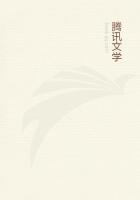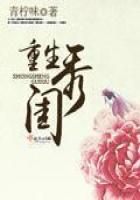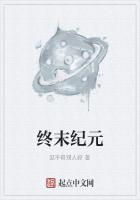I cannot think, again, that he was unfair in supposing that he might hold at the same time the Jewish belief concerning Creation, and the Platonic doctrine of the real existence of Archetypal ideas, both of moral and of physical phenomena. I do not mean that such a conception was present consciously to the mind of the old Jews, as it was most certainly to the mind of St. Paul, a practised Platonic dialectician;but it seems to me, as to Philo, to be a fair, perhaps a necessary, corollary from the Genetic Philosophy, both of Moses and of Solomon.
But in one thing he was unfair; namely, in his allegorising. But unfair to whom? To Socrates and Plato, I believe, as much as to Moses and to Samuel. For what is the part of the old Jewish books which he evaporates away into mere mystic symbols of the private experiences of the devout philosopher? Its practical everyday histories, which deal with the common human facts of family and national life, of man's outward and physical labour and craft. These to him have no meaning, except an allegoric one. But has he thrown them away for the sake of getting a step nearer to Socrates, or Plato, or Aristotle? Surely not.
To them, as to the old Jewish sages, man is most important when regarded not merely as a soul, but as a man, a social being of flesh and blood.
Aristotle declares politics to be the architectonical science, the family and social relations to be the eternal master-facts of humanity.
Plato, in his Republic, sets before himself the Constitution of a State, as the crowning problem of his philosophy. Every work of his, like every saying of his master Socrates, deals with the common, outward, vulgar facts of human life, and asserts that there is a divine meaning in them, and that reverent induction from them is the way to obtain the deepest truths. Socrates and Plato were as little inclined to separate the man and the philosopher as Moses, Solomon, or Isaiah were. When Philo, by allegorising away the ****** human parts of his books, is untrue to Moses's teaching, he becomes untrue to Plato's. He becomes untrue, I believe, to a higher teaching than Plato's. He loses sight of an eternal truth, which even old Homer might have taught him, when he treats Moses as one section of his disciples in after years treated Homer.
For what is the secret of the eternal freshness, the eternal beauty, ay, I may say boldly, in spite of all their absurdities and immoralities, the eternal righteousness of those old Greek myths? What is it which made Socrates and Plato cling lovingly and reverently to them, they scarce knew why, while they deplored the immoralities to which they had given rise? What is it which made those myths, alone of all old mythologies, the parents of truly beautiful sculpture, painting, poetry?
What is it which makes us love them still; find, even at times against our consciences, new meaning, new beauty in them; and brings home the story of Perseas or of Hercules, alike to the practised reason of Niebuhr, and the untutored instincts of Niebuhr's little child, for whom he threw them into ******st forms? Why is it that in spite of our disagreeing with their creed and their morality, we still persist--and long may we persist, or rather be compelled--as it were by blind instinct, to train our boys upon those old Greek dreams; and confess, whenever we try to find a substitute for them in our educational schemes, that we have as yet none? Because those old Greek stories do represent the Deities as the archetypes, the kinsmen, the teachers, the friends, the inspirers of men. Because while the schoolboy reads how the Gods were like to men, only better, wiser, greater; how the Heroes are the children of the Gods, and the slayers of the monsters which devour the earth; how Athene taught men weaving, and Phoebus music, and Vulcan the cunning of the stithy; how the Gods took pity on the noble-hearted son of Danae, and lent him celestial arms and guided him over desert and ocean to fulfil his vow--that boy is learning deep lessons of metaphysic, more in accordance with the reine vernunft, the pure reason whereby man perceives that which is moral, and spiritual, and eternal, than he would from all disquisitions about being and becoming, about actualities and potentialities, which ever tormented the weary brain of man.
Let us not despise the gem because it has been broken to fragments, obscured by silt and mud. Still less let us fancy that one least fragment of it is not more precious than the most brilliant paste jewel of our own compounding, though it be polished and faceted never so completely. For what are all these myths but fragments of that great metaphysic idea, which, I boldly say, I believe to be at once the justifier and the harmoniser of all philosophic truth which man has ever discovered, or will discover; which Philo saw partially, and yet clearly; which the Hebrew sages perceived far more deeply, because more humanly and practically; which Saint Paul the Platonist, and yet the Apostle, raised to its highest power, when he declared that the immutable and self-existent Being, for whom the Greek sages sought, and did not altogether seek in vain, has gathered together all things both in heaven and in earth in one inspiring and creating Logos, who is both God and Man?
Be this as it may, we find that from the time of Philo, the deepest thought of the heathen world began to flow in a theologic channel. All the great heathen thinkers henceforth are theologians. In the times of Nero, for instance, Epictetus the slave, the regenerator of Stoicism, is no mere speculator concerning entities and quiddities, correct or incorrect. He is a slave searching for the secret of *******, and finding that it consists in escaping not from a master, but from self:
not to wealth and power, but to Jove. He discovers that Jove is, in some most mysterious, but most real sense, the Father of men; he learns to look up to that Father as his guide and friend.

